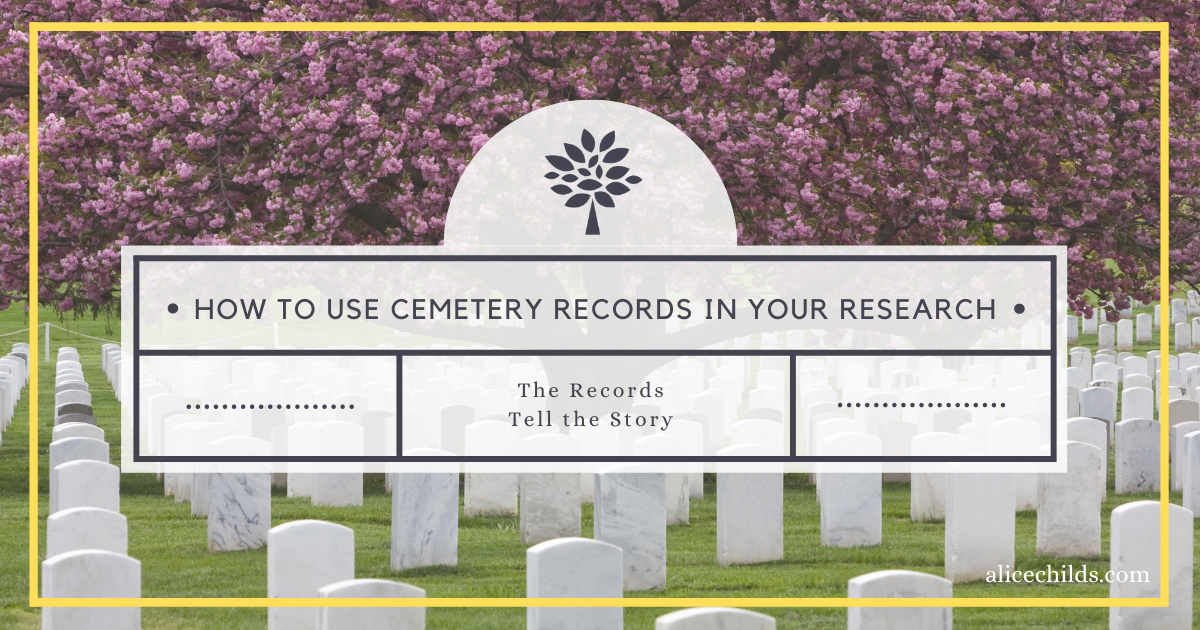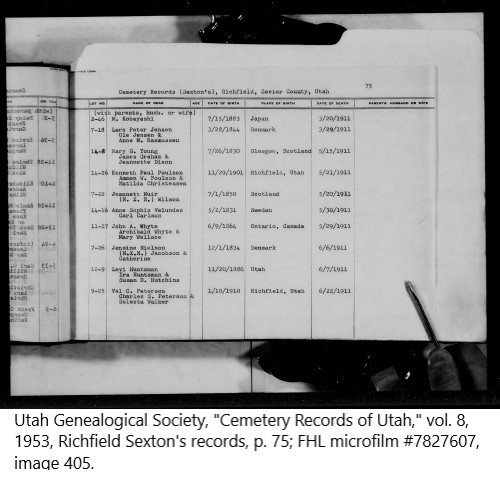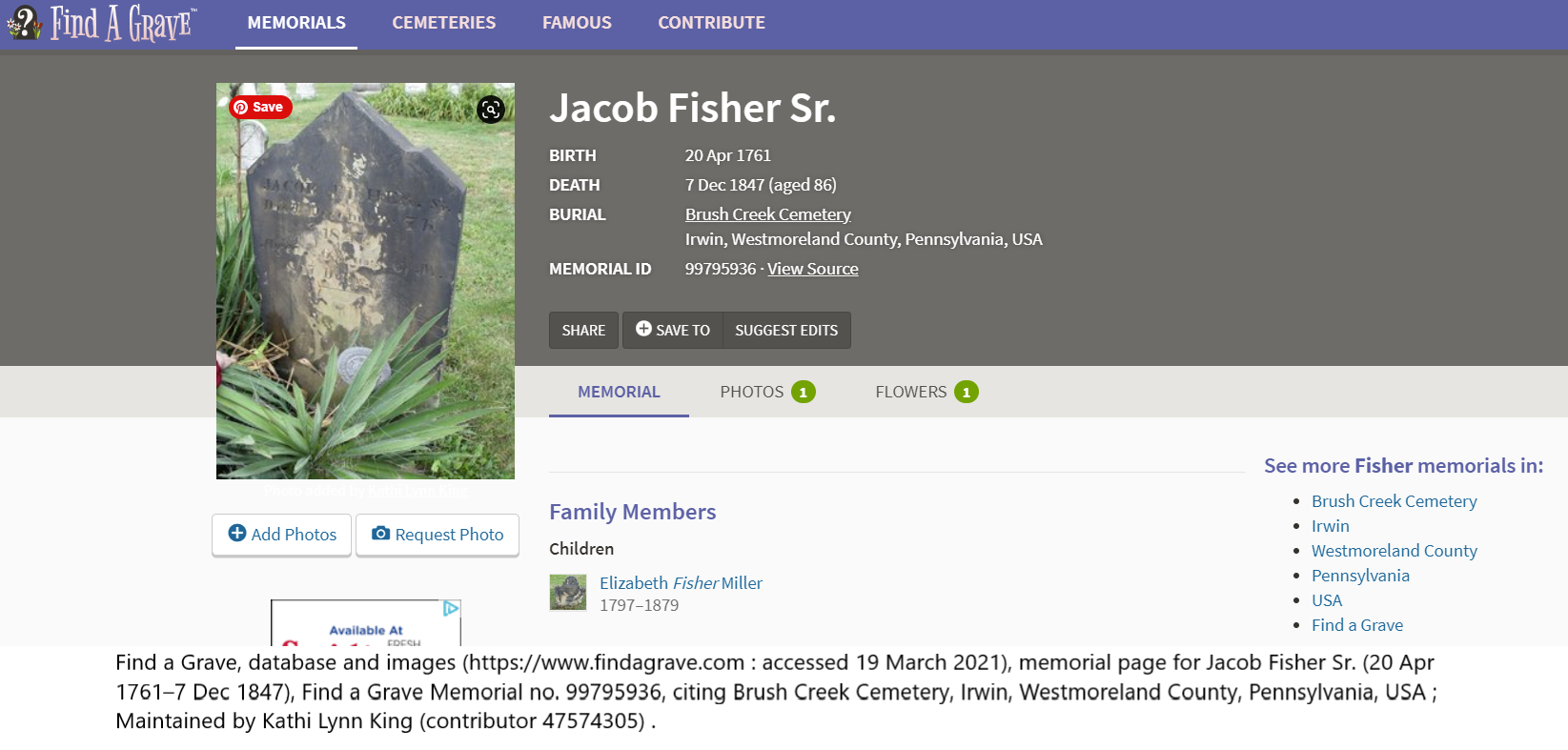
I am currently preparing for the ICAPGen Level 2 & 3 testing. One of the things I am doing to prepare is creating a Genealogy Research Reference Guide. The creation of this guide will serve me in three ways: first, I’ll be studying and learning more about the resources available in the Mid-Atlantic region; second, because the tests are open-book, I will have a library of resources with links to records, research guides, and research strategies at my fingertips to refer to during the test; finally, my Research Reference Guide will be a resource for my professional research going forward.
Cemetery records are one of the record types in the “Must Know Very Well” category of important record types for ICAPGen accreditation in the Mid-Atlantic region. I have just finished my cemetery records guide, and I am excited to share what I have learned. Many times when we think of cemetery records, we think of Find a Grave or maybe even Billion Graves. While these are fantastic resources, there are many more resources available for your research in cemetery records. I will be sharing what I have compiled in a series of three articles. First, I will share what types of information can be found in cemetery records, types of cemetery records, types of cemeteries, and where to find cemetery records. My next post will dive deeper into clues that can be discovered about your ancestor’s life from cemeteries and headstones. My third post will talk about a companion to cemetery records: Funeral Home records.
Although it is ideal to corroborate information found in cemetery records for your ancestor with other records, cemetery records might sometimes be the only information found about the birth and death of an ancestor. In particular, cemetery records might be the only evidence of children who died in childhood and maybe even for some adult women’s lives, particularly women who grew up pre-1850. Here are some quick facts about cemetery records:
Information That can be Included on Cemetery Records
- Birth information
- Marriage information
- Death information
- Clues to military service
- Clues to religion
- Clues to membership in an organization
Types of Cemetery Records:
- Sexton (or caretaker) records – names and dates of those buried and maps of the burial plots.
- Cemetery Deeds – Deeds are given to the the owner of the plat, and recorded copies are kept by the sexton in deed books.
- Church records – might include burial records that could give birth, marriage, and other family or health details.
- Tombstone transcriptions
- Cemetery burial records, or permits for burial. Often include birth, marriage, and death information. Sometimes provide clues about military service, religion, or membership in an organization, such as a lodge. Especially helpful for identifying children who died young or women who were not recorded in family or government documents.
- Online cemetery databases (discussed below)
Types of Cemeteries
- Community
- Church
- Private
- Military
- Family
How to Find Where a Person is Buried
- Persons are usually buried near the place where they lived or died or where other family members were buried.
- Look for clues in the following places:
- Funeral notices
- Obituaries
- Church records
- Funeral home records
- Death records
- County deeds
Where to Find Cemetery Records
- Contact the present sexton of the cemetery
- Contact the minister if it is a church cemetery
- Town or city clerks often hold cemetery records for a community cemetery
- Contact the funeral home
- Local library
- Local historical society
- Local historian
- Cemetery associations sometimes publish inventories or transcripts for their areas
- Local Genealogical periodicals sometimes publish seton’s records and transcripts of tombstones
- Lists of soldiers’ graves

Where to Find Cemetery Records Online
- Find a Grave – The most well-known free site with over 190 million memorials from cemeteries around the world. The memorials at Find a Grave are created by contributors from the community.
- Billion Graves – although newer than Find a Grave with a smaller database, it is the world’s largest resource for searchable GPS cemetery data that will help you pinpoint the exact location of your ancestor’s burial site. The data on Billion Graves is also contributed by community volunteers.
- Interment.net – This website contains 25+ million cemetery records, transcripts, and burial registers, from tens of thousands of cemeteries across the world, all contributed by genealogists, cemeteries, government agencies, and private organizations.
- Names in Stone – An online repository designed to help researchers find and document cemetery records and maps.
- The Ancestor Hunt – Links to free online cemetery resources by state provided by Kenneth R. Marks.

I hope this information and the links provided will help you as you are researching your ancestors’ lives in cemetery records.
Sources:
“United States Cemeteries,” FamilySearch Research Wiki (https://www.familysearch.org/wiki/en/United_States_Cemeteries : accessed 19 March 2021).
Johni Cerny, “Cemetery Records,” RootsWeb (https://wiki.rootsweb.com/wiki/index.php/Cemetery_Records : accessed 19 March 2021; original article appears in “Vital Records,” The Source: A Guidebook to American Genealogy.
Donna Streetenberger, “A Gravesite Can Reveal Remarkable Details About Your Ancestor, IF You Can Find It: Here’s How,” Family History Daily (https://familyhistorydaily.com/genealogy-help-and-how-to/find-a-gravesite/ : accessed 19 March 2021).
